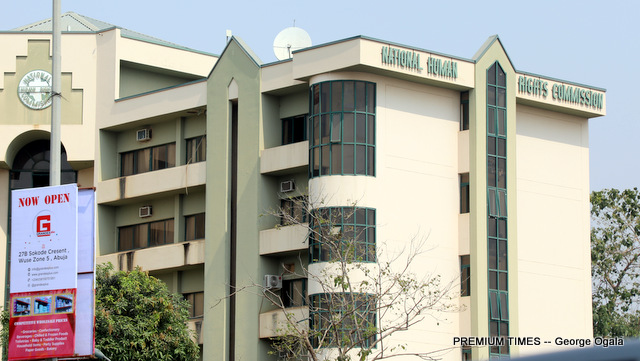To commemorate International Labour Day 2025, the National Human Rights Commission (NHRC), on Thursday, charged the federal government to initiate economic reforms aimed at improving human dignity, social justice, and citizens’ well-being.
The Executive Secretary of the NHRC, Tony Ojukwu, gave this charge in a press statement released on Thursday.
He said, “While we commend the Federal Government for some of the initiatives so far taken to alleviate the economic hardship, we call for economic reforms that prioritise human dignity, social justice and the well-being of citizens. Nigerians deserve policies that ensure decent work, fair wages and access to essential services, which will enable them to live with dignity and hope for a better future.”

International Labour Day also known as Workers Day is celebrated annually on 1 May as a demonstration of support to workers globally.
Mr Ojukwu reaffirmed the NHRC’s solidarity with Nigerian workers, recognising their dedication to national progress amidst economic hardships.
He expressed sympathy for workers over their plights, particularly the challenges of reduced purchasing power due to inflation, which makes it difficult to afford necessities.

“Nigerian workers are facing unprecedented hardships due to the high inflation rate which has significantly eroded the purchasing power of salaries, making it increasingly difficult for workers to afford necessities of life. The soaring cost of transportation has further compounded these challenges, often hindering workers’ ability to commute to their workplaces, thereby affecting overall productivity,” he said.
Furthermore, he lamented that the economic challenges have exacerbated poverty, and have rendered individuals susceptible to preventable illnesses and death.
President Bola Tinubu’s prime economic policies of removal of fuel subsidies and floating of the naira had led to steep increase in prices, worsening living conditions of many Nigerians.

This prompted the Nigeria Labour Congress (NLC) and Trade Union Congress (TUC) to embark on a national strike to compel the government to agree on a new minimum wage for workers, and review the increase in the price of electricity for some consumers.
After a series of negotiations, the labour unions reached an agreement with the federal government on a new minimum wage, N70,000. But some states have yet to implement the new minimum wage.
According to a report, 20 states including the Federal Capital Territory have not implemented the new wage.

Suppression of peaceful protests
Mr Ojukwu also raised concerns about reports that indicated the suppression of peaceful protests by law enforcement officers.
Kicking against this, he noted that the actions were unconstitutional and also stifled democracy.
He encouraged law enforcement officers to respect and uphold citizens’ rights to freedom of expression, peaceful assembly and association.
The NHRC boss urged the government to engage in dialogues with labour unions to address the grievances of workers. Also, he encouraged labour unions to adopt proactive measures in advocating for workers.
He also noted that the day was marked to “serve as a strong reminder of the invaluable contribution of the Nigerian Workers to National Development.”




